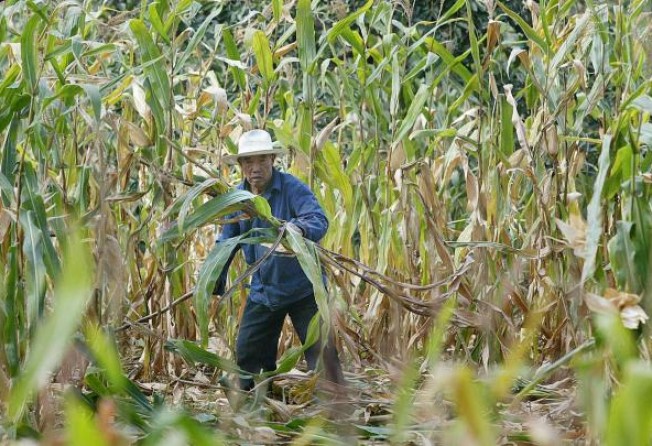
Beijing to spend 18b yuan to protect farmers' land rights
Beijing set to spend 18b yuan on clarifying tenure of plots and ordering local officials to issue certificates to farmers in five years

The mainland is going to spend 18 billion yuan (HK$22.4 billion) identifying and registering the contractual rights of farmland in the countryside over the next five years amid concern too much arable land is being appropriated as an increasing number of farmers move to towns and cities.
Local governments should finish clarifying land tenure in rural areas and issue certificates to farmers within five years, the central government said in its first policy document of the year, published on Thursday.
Explaining the document yesterday, top rural policymaker Chen Xiwen estimated the work would cost eight to 10 yuan for each mu (667 square metres) of land. Considering the mainland had 1.82 billion mu of farmland at the end of 2011, according to official statistics, that would translate into a cost of 18 billion yuan.
Farmers' interests have often been undermined because of lack of legal proof of ownership of land. The "No1 document", which lays out priorities for rural work for the coming year, said certification of land tenure should make it easier for farmers to transfer their land.
The Land Administration Law gives farmers contractual rights to the land they farm for 30 years. The central authorities decided to increase the security of land tenure in 2008. A directive issued that year said contractual land management rights for farmers should "remain unchanged for a very long time".
However, unlike urban home owners, rural residents do not yet hold certification to prove their legal rights to their residences and farmland.
Chen, director of the State Council's rural policy office, said measuring all the farmland across the country and clarifying who it belonged to would "involve a great deal of work".
He added that local governments would arrange budgets and the central government would provide financial support.
Professor Zheng Fengtian of Renmin University said the central government launched the work in 2008 and aimed to finish it by the end of last year. "Setting the deadline of five years in the No1 document shows how difficult this work has been," he said.
Li Guoxiang , a researcher at the Chinese Academy of Social Sciences' Rural Development Institute, said the work had been difficult because of land disputes and the reluctance of grass-roots cadres.
"Without certificates for individual households, a big portion of the compensation paid for land requisitioned goes to the village committee, which takes control of the money in the name of improving public welfare," he said, noting that according to the constitution rural land is collectively owned. "The village committee would certainly worry that compensation would go directly to individuals after the clarification of who owns what."
Mainland agricultural imports have recently surged.